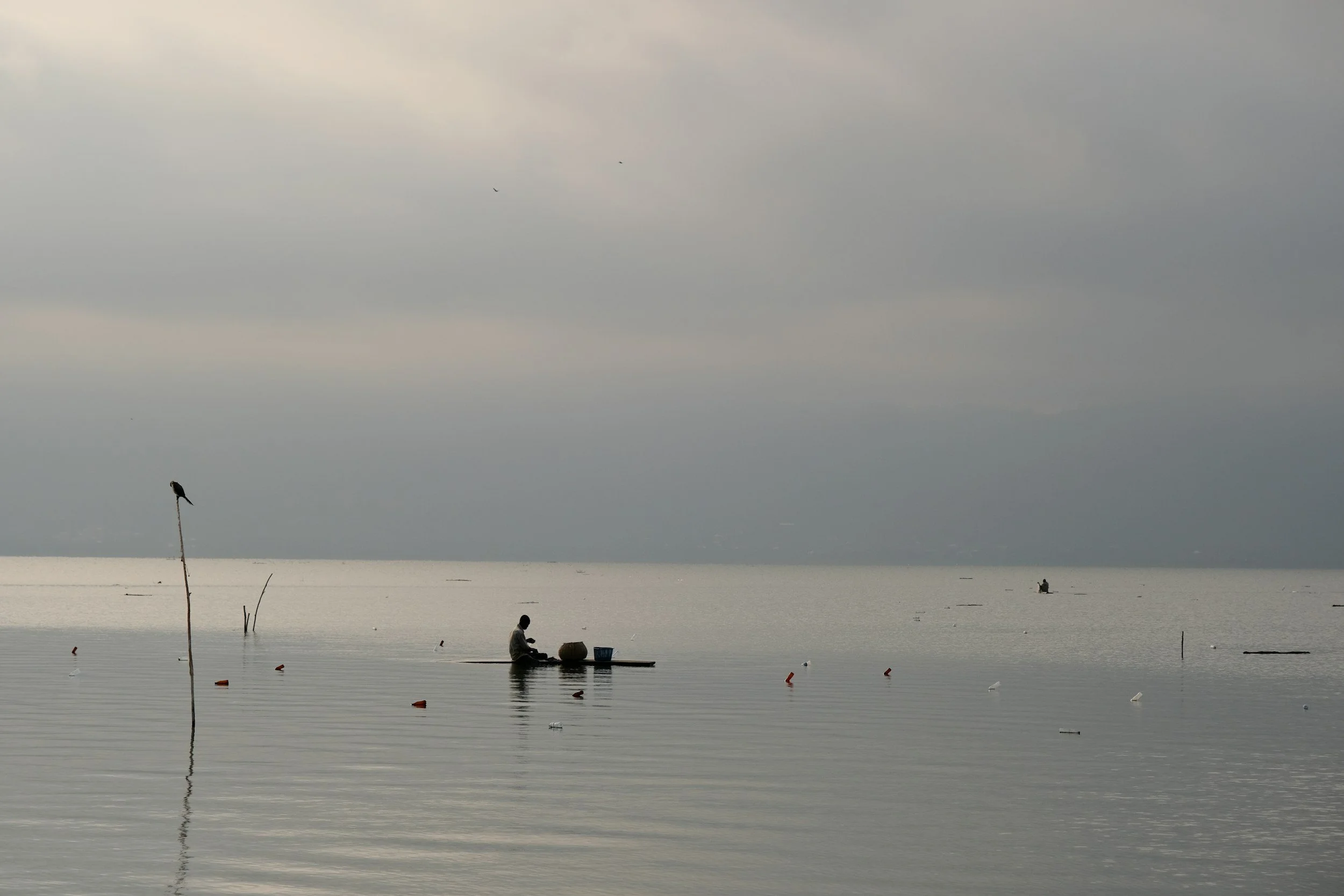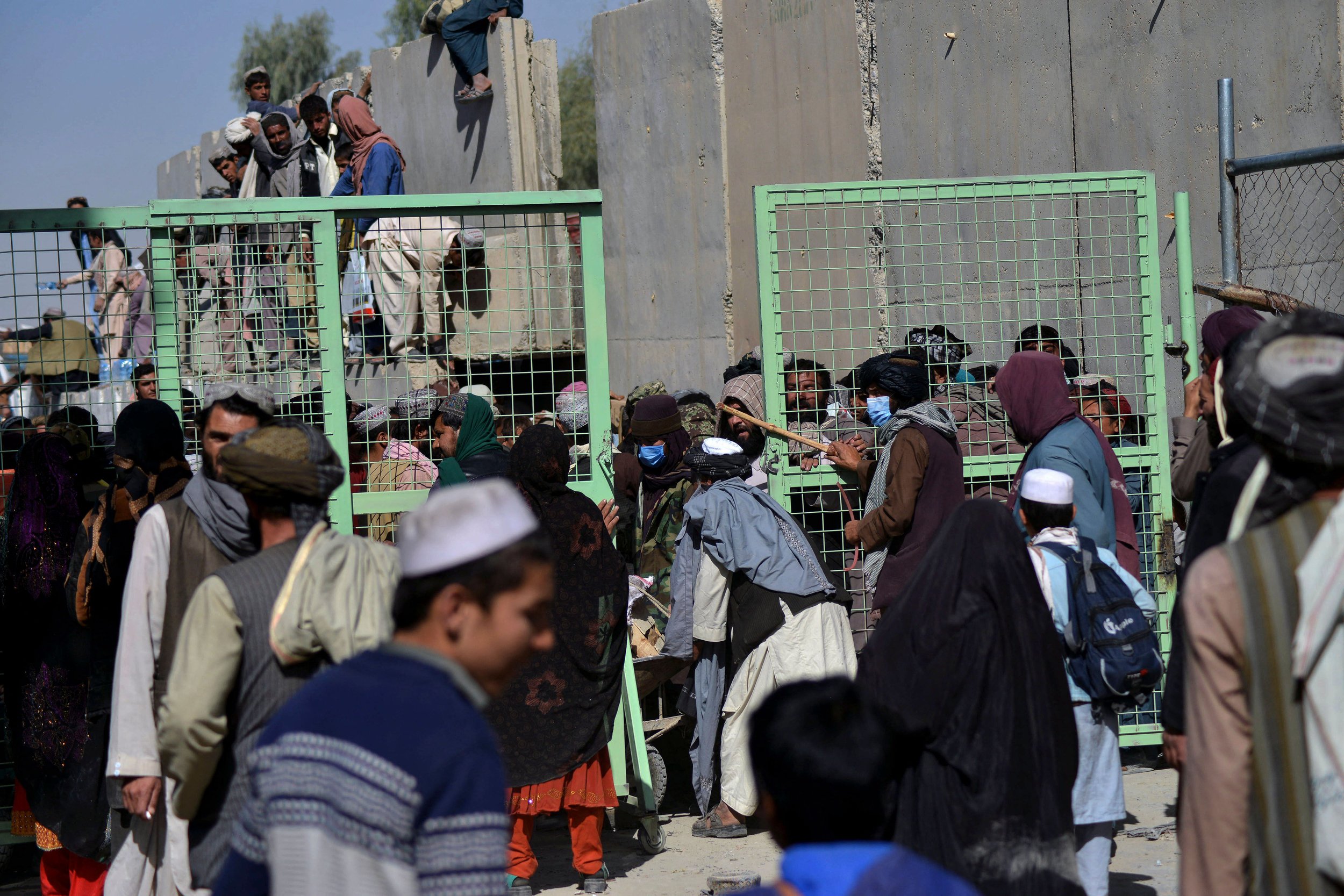Fueling the Hyperscale Era: Russian and Chinese Control of Uranium Supply Chains
With an increased international focus on nuclear energy, countries should evaluate potential chokepoints in the supply chain.
Collapse at Lake Chad: How Climate Stress Transforms Resources Into Flashpoints
The Sahel exemplifies how climate change intensifies resource scarcity, conflict, and governance challenges across fragile states.
A Prerequisite to Posterity: Empowering the Haitian State After Decades of Marginalization
Some 80% of public services are provided through NGOs, cyclically justifying disinvestment from the Haitian state and depriving it from growth opportunities. To ensure a future Haitian state is experienced and prepared for long-term governance and social services, NGOs must either instructively partner with the Haitian state or allow themselves to be functionally replaced.
Satellite-Based ISR Capabilities and the Balance of Power in the Taiwan Strait
Why Taiwan must develop its network of reconnaissance satellites and anti-satellite capabilities to counter advances in the PRC.
Iran and Türkiye’s Managed Geopolitical Rivalry
If leveraged correctly, Ankara and Tehran can use their unique - and often tenuous - relationship to promote peace in the Middle East.
Challenging Transnational Human Trafficking in Vietnam
Human trafficking has reached a rampant level in Vietnam, primarily targeting women, children, and ethnic minorities.
Climate Change Drives Internal Displacement in Iraq
In the wake of the damage the Department of Government Efficiency (DOGE) has done to USAID, the international community should rally to provide support and fight climate change in Iraq and reduce the harm to its IDPs
Six Decades Later, France's Suspicions About U.S. Reliability Have Been Vindicated
Many European officials were taken aback after the February 2025 Oval Office meeting between American President Donald Trump and Ukrainian President Volodymyr Zelensky, wondering why an American president would seemingly side with Russia over Ukraine. However, France foresaw this situation six decades ago and has used this uncertainty to position itself as the leader of a strategically independent Europe. Nevertheless, the challenge for France is to reconcile its desire for a global France with that of a global Europe.
How U.S. Tariffs on China Might Bolster Other Asian Economies
As a trade war looms ahead, countries neighboring China are stepping up to reshape trade dynamics.
Election and Integration: Moldova’s Battle for Sovereignty and Democracy
Moldova’s elections reveal a nation torn between European aspirations and Russian influence.
The Intersection of Incel Culture and Hindu Nationalism
Western incel culture and Hindu nationalist misogyny bear differing points of origin and reasons for existence, but both present a threat to the physical and mental security of women.
Foreign Fodder: Countering Russia’s Use of Foreign Manpower and Mercenaries
Russia’s use of international recruitment benefits its foreign policy beyond Ukraine's battlefields.
Can the Organisation Internationale de la Francophonie Be Less France-Centric?
The Organisation Internationale de la Francophonie (OIF) is one of many examples of former colonial powers continuing to exert influence over their former colonies. However, for the OIF to remain relevant in 2024, it must become less France-centric.
Addressing Conflict-Related Sexual Violence in Wartime Ukraine
Ukraine lacks essential CRSV policy in its fight against Russia, putting its citizens at risk.
Women Peacebuilders: Commonalities in Northern Ireland, Liberia, and Israel/Palestine
Across Northern Ireland, Liberia, and now Israel/Palestine, women peacebuilders use peace as a strategy in the face of conflict.
The United States Must Reassess Its Military Aid to Tunisia to Support Democracy
The Biden administration must reassess military aid to Tunisia to support democracy and regional stability in the Middle East and North Africa.
The Gender and Security Dilemma of Al-Hol
Investigating Al-Hol’s current state reveals complex dynamics that impact the residents and region.
Russia Distances Itself from Neighboring Afghan Refugees: Part Two
Russian migration policy rarely recognizes asylum and makes the process painstakingly long, particularly for their Afghan neighbors.
Russia Distances Itself from Neighboring Afghan Refugees: Part One
Russian migration policy rarely recognizes asylum and makes the process painstakingly long, particularly for their Afghan neighbors.
How Many Conflicts are Palestinian Women Fighting?
Palestinian women struggle against both obvious and hidden consequences of conflict.



















